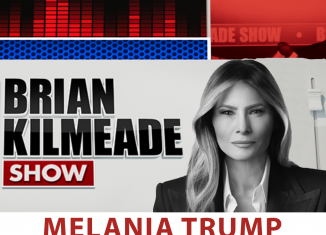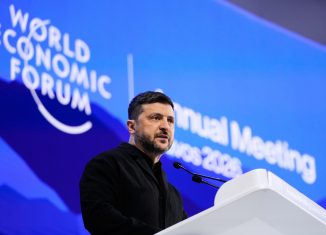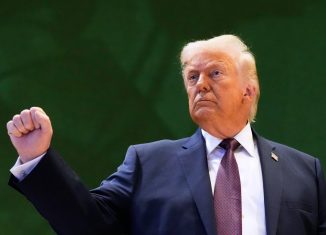Senator Lindsey Graham spoke with Brian Kilmeade about his hope that President Trump will change course in Syria and introducing ďsanctions from hellĒ in the Senate to ďbreak Erdoganís economy and cut off all aid to the military.Ē Graham said the Presidentís decision in Syria breaks his heart because it was a low intensity conflict where the Kurds were safe and ISIS prisoners were secure. Graham believes President Trump didnít end an war like he claims, but instead, started a bigger one.
Senator Graham also discussed having Rudy Giuliani testify before the Senate Judiciary Committee on Ukraine corruption potentially tied to former Vice President Joe Biden and why he believes President Trumpís phone call with Ukraine President Volodymyr Zelensky ďwas a good phone call not a bad phone call.Ē When asked if the Trump Administration deciding not to cooperate with the House is a good tactic, Senator Graham agreed with the President that it is not a legitimate impeachment inquiry because the impeachment inquiry has not been authorized by the House. Graham went on to say that if the House does vote for an impeachment inquiry then the White House does have to cooperate and honor subpoenas.
Watch here for the full interview:
BRIAN KILEMADE, BRIAN KILMEADE SHOW HOST: Senator, about three or four days ago, Monday morning, you feared that with our pullout of troops and the green light to Turkey that the Kurds were going to be in trouble —
SEN. LINDSEY GRAHAM (R-SC): Yes.
KILMEADE: — and the ISIS prisoners were going to get loose.
GRAHAM: Yes.
KILMEADE: Here we are at the end of the week. Whatís happened?
GRAHAM: Iím more concerned than ever. The Kurds were talking to Assad because theyíve got no other place to go. Turkey said today, weíre not going to take over the ISIS prisoner camps except in the areas that we occupy. Our Kurdish allies are being killed by Turkey as I speak.
Thereís a special forces guy I think with Jennifer Griffin teared up when he thought about the idea that all the Kurds I fought with and trained Iím going to have to abandon. He felt ashamed for this first time in his military service.
What weíre doing to the Kurds is dishonorable and itís dangerous for us because if Turkey keeps coming into Syria and going after the Kurdish fighters who fought with us to defeat ISIS, then ISIS will break out in Iran and Assad will be the biggest winner.
I talked with the president. I hope heíll change course. Iíve got sanctions against Turkey that I will introduce next Tuesday. These are sanctions from hell. Iím going to break Erdoganís economy and cut off all aid to the military. And it really pisses me off, Brian, that F-16s designed in — by the Americans are being used to bomb the Kurds by Turkey.
KILMEADE: But for people like the president who says these enemies 7,000 miles away, itís time for our troops to come home.
GRAHAM: Yes. Oh, thatís ridiculous, to be honest with you. You canít win the war from the air. You know how Raqqa was liberated? By the Kurds — by the Arabs and the Kurds and the Syrian democratic forces went street-to-street, house-to-house and wound up having to kill a bunch of them. And there are about 60,000 people in these refugee camps.
The ISIS wives are more dangerous than the ISIS soldiers. Thereís over 12,000 ISIS fighters in prison that are going to get out. So to President Trump, if you think you can defend America without allies, good luck. If you think you can defend America against ISIS from the air 7,000 miles away, youíll be doing something no other militaryís ever done in history — win a war from the air alone.
So endless wars — it takes two to end a war. Theyíre still fighting. They donít want to end the war. The question for us is how do we fight them? I believe the best way to fight the war is for some of us, a small footprint, working with people like the Kurds to keep the enemy at bay so they donít come here again. And that model works and what President Trump is proposing will not work.
KILMEADE: So the big difference now, the president says heíll go back in if it becomes a problem. The big difference now, the Russians are down there.
GRAHAM: Well, so, this is a big mistake. Number one, all the people we captured are going to get — are going to break out. What do you say to an American soldier whoís fought with the Kurds, died with the Kurds, and say weíre leaving them behind when we told them we wouldnít leave them?
They came to Washington about three years ago as a group and met with members of Congress and I think they met with the president. And we assured them if you fight with us, you stay with us, you help us, we will stay with you.
And hereís what breaks my heart. We had less than 1,000 soldiers in Syria. Weíve had eight casualties in the last four years. God bless the eight, but this was a low-intensity conflict. The Kurds were safe. The prisoners were secure.
President Trump hasnít ended the war; he started a bigger one. And if you think weíre not going to be affected by whatís happening in Syria, youíll find out soon how wrong you are.
KILMEADE: So instead of even talking about policy, letís talk about action. If we wanted to fix —
(CROSSTALK)
GRAHAM: Yes.
KILMEADE: — and thereís already over 100 Kurds dead —
(CROSSTALK)
GRAHAM: Right.
KILMEADE: — if we wanted to fix this situation outside sanctions —
GRAHAM: Right.
KILMEADE: — is there a fix?
GRAHAM: Yes, yes. Hereís the fix. Join my effort to sanction Turkey for their incursion into Syria. Weíre hitting their energy sector. Weíre going to cut off all military aid. Weíre going to hit their economy and really cripple Erdogan. If you join in with the congressional effort to sanction Turkey, he will get out because weíll break his economy. And the sanctions stay in place as long as Turkey is in Syria.
Number two, you should send some soldiers in to make sure that these ISIS prison camps, that they donít break out.
KILMEADE: Right now. Right now.
GRAHAM: Right now. Mr. President, while you have a chance, there are about 12,000 ISIS fighters who are going to break out if you donít do something. So what I would do is tell Erdogan weíre going to send in, you know, whatever number you need — talk to General Keane — to secure these prison camps. And if you come anywhere near us, we will blow you out of the sky and blow you up.
Now, if he did that, we could reset. And how does this end? Have a safe zone between Turkey, because they feel threatened by the Kurds. We can tell Turkey weíll keep the YPG Kurds away from the Turkish border, weíll have American, Turkish, and international forces patrolling this safe zone, we can watch ISIS together, and we can put Syria back together again, get a peace deal in Geneva.
KILMEADE: We know thereís different sects to the Kurds.
GRAHAM: Yes.
KILMEADE: I mean, the Peshmerga are from Iraq —
(CROSSTALK)
GRAHAM: Yes.
KILMEADE: — the YPG are different from the other sects that are in the area, so we know itís somewhat of a complex situation, but it was a situation that was working.
GRAHAM: OK, so what I said three years ago, the YPG Kurds are the cousins of the PKK. Theyíre a terrorist group inside of Turkey. The PKK is seen as a terrorist group by the United States. The YPG is a Syrian offshoot of that group. They were the only ones that would fight with us — a few Arabs — to destroy ISIS, so we had to make an alliance with the Kurds because nobody else would help us.
We owe it to them to not abandon them, but we owe to them to not abandon them, but we owe it to Turkey to keep this group they consider to be terrorists away from the Turkish border. Thatís what the safe zone was about. It was working until President Trump gave in to a threat by Erdogan.
What Erdogan told him last Sunday was Iím coming in and President Trump basically said OK. What he should have said, if you cross into Syria and harm one hair of a Kurdish head who helped us destroy ISIS, you will be taking the United States on and he wouldnít have done it.
KILMEADE: And the other thing I donít have patience for, I donít know about you, is people from the Obama administration —
(LAUGHTER)
— saying weíre doing the wrong thing, like Susan Rice. What do you mean the wrong thing? This all happened under their watch. ISIS came flooding in, the JV team that almost took Baghdad, then they went into Syria. This is not Donald Trumpís doing.
GRAHAM: It would be like asking a sumo wrestler how to lose weight. The last group of people I would go to to get advice about how to deal with radical Islam is the Obama administration. What President Trump seems not to get, that radical Islam is not tired of fighting us, even though youíre tired of fighting them.
And this idea you can protect the nation called Fortress America, that we can bring all of our troops home from the Mideast and everywhere else and things will work out well is crazy. Hereís what will happen.
If we leave the Mideast, our friends in Israel will be in a world of hurt. Certain areas will fall in the hands of radical Islam. They will plot from there to hit us here just like they did from Raqqa. Look at the attacks that were generated out of Raqqa, Syria against European cities. That will happen to us. Look at the number of inspired ISIS — ISIS inspired attacks here.
If they come back and theyíre seen as winners again, every radical Islamist in the world is going to be on steroids. Mr. President, stop this while you still can.
KILMEADE: Should be interesting to see whatís going to happen here. Next, on impeachment, you asked Rudy Giuliani to come down today. There were two arrests to people that Giuliani was working with.
GRAHAM: Yes.
KILMEADE: What can you tell us about this?
GRAHAM: Well there were campaign violation allegations. Theyíre innocent until proven guilty. But Rudy says that during his time in the Ukraine, he found a lot of evidence of corruption. Iíd like to hear about it. Iíve heard it on television; it sounds pretty damming, quite frankly. People want me to look at both sides, I will.
But I got to have witnesses. Volker, you have Jim Jordan, a good friend of mine, saying that the Volker testimony, the Ambassador Volker, a special envoy to the Ukraine, that the Democrats are not releasing the entire transcript of what he said. That if you looked at everything he said, he exonerated President Trump regarding quid pro quo.
So hereís my offer. That if the Democrats wonít release the whole transcript, I will call Volker to the Senate so we can hear both sides of the story. What I want people to understand, thereís two sides of the story in Ukraine.
The phone call by the president to me was a good phone call, not a bad phone call. We give, what, Ukraine $400 million, $500 million a year. Itís OK to find out about corruption. So the phone call is not remotely an impeachable offense. So, I want to look at everything Ukraine, not just the Trump part.
KILMEADE: OK. Lastly on the impeachment front, the administration has decided not to cooperate. I know thatís the House where you used to work.
GRAHAM: Yes.
KILMEADE: You donít work there now. Is that a good tact?
GRAHAM: For right now it is because this is not a legitimate impeachment inquiry. This is an impeachment inquiry that has not been authorized by the House. I think for it to be legitimate, the House would have to vote a majority to say letís open up the impeachment inquiry. That has not been done.
The day thatís done, then you have to cooperate. I wound honor subpoenas then. And if I had a challenge, Iíd go to court. So I donít blame the president for legitimizing something thatís not legitimate. But if they do vote to impeach him, the rules change.
KILMEADE: Got you. And Trey Gowdy now joins the presidentís legal team. You know him well.
GRAHAM: Yes, I talked to him today.
KILMEADE: What does he bring?
GRAHAM: He brings a lot. He understands the Congress. Heís a smart lawyer but it wonít matter if the president wonít listen to him. Hereís the argument I wouldíve been making right now. Whatís going on in the House, youíre shutting out Republicans in an impeachment process.
The other side can subpoena witnesses; under this process they canít. Under a normal impeachment process authorized by the House as a whole, both sides can call witnesses, under this process you canít.
The presidentís being accused of misconduct by a witness, we donít know who they are, not subject to cross examination and open in an open setting. You canít get a parking ticket in America based on an anonymous allegation.
So, whatís wrong with the House proceeding is it shuts out the Republicans, it doesnít allow the president to confront his accuser. Itís not legitimate. They need to vote.
KILMEADE: All right. You think you worry — if youíre Trey Gowdy, you worry the presidentís not going to listen?
GRAHAM: Well, the president in many ways is his own best offender, in many ways is his own worst enemy. Heís a force of personality. Heís a — I like him, heís my friend. What heís doing in Syria I think is going to hurt his presidency and make us less safe and Iím going to tell him that. But I think this effort to impeach him is ridiculous.
KILMEADE: Right.
GRAHAM: Iím going to stand by him. Iím going to fight for him because I think what theyíre doing is wrong.
KILMEADE: How do you explain the Fox News poll and other polls that show more — thereís more support for impeachment than ever.
GRAHAM: I think part of it is that the presidentís unnerving people by his actions. I think the whole Syria thing goes into the calculation that maybe heís losing control over the situation in Syria. I donít think that helps him in terms of being seen as a competent, capable leader. What did Clinton do during impeachment? He governed.
He dealt with the Congress. We passed legislation while he was being impeached. My advice for President Trump is govern the country. These numbers are shifting mainly because Democrats are more enthused than they were before. But independents are beginning to bleed against the president.
I think a guy like Trey Gowdy can remind the American people that whatís going on in the House is not fair. The American people, if theyíre anything, theyíre fair. I donít think most Americans would like to be tried by an anonymous source.
So what Trey has to do and I have to do is convince the American people that if itís really as bad as the House says, why donít they vote? If theyíre not willing to vote, this is not right.
KILMEADE: Great. Senator, thanks so much.








